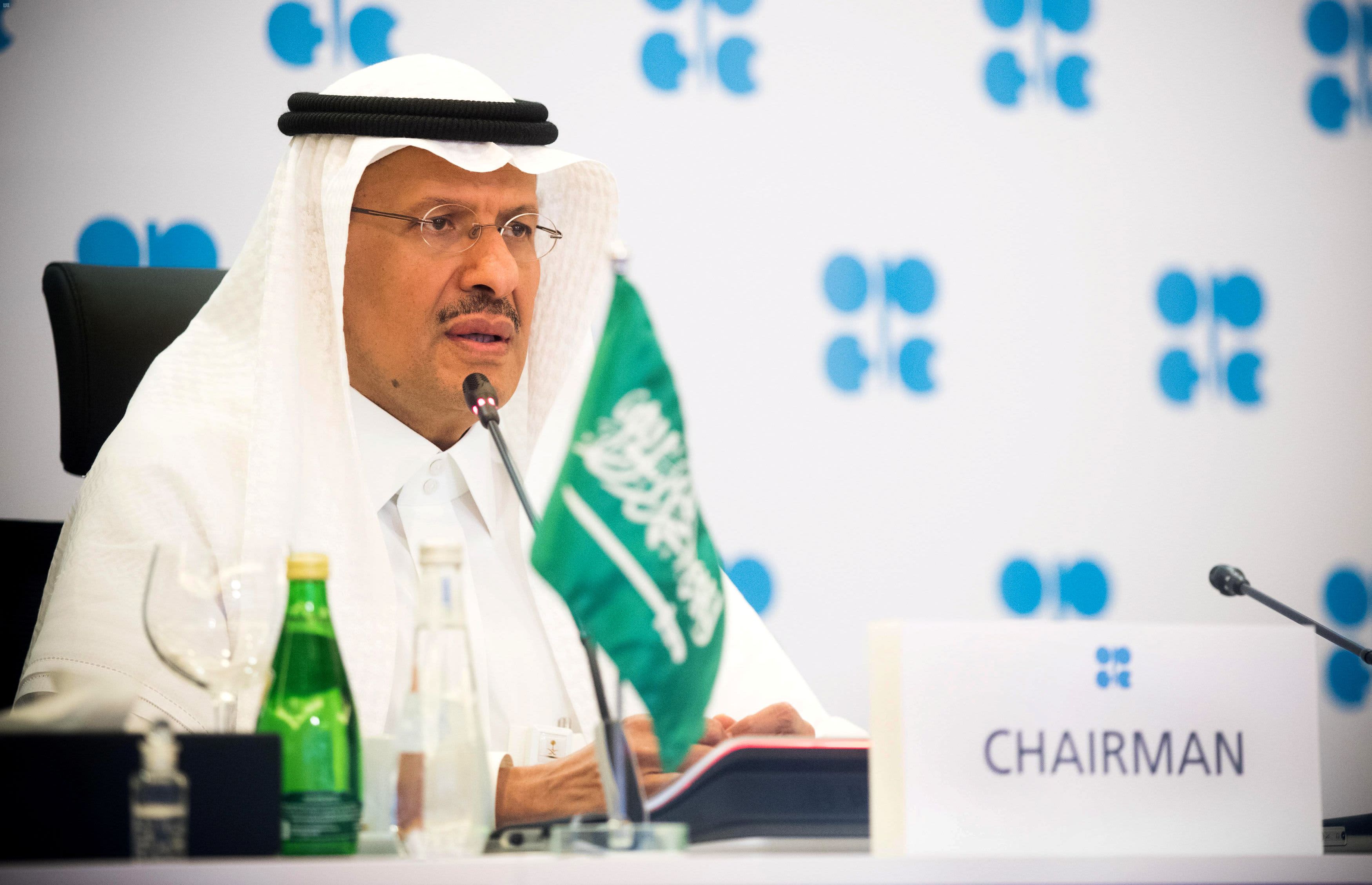OPEC and allies target full end to oil production cuts by September 2022, increase supply as prices climb

Saudi Arabia’s Minister of Energy Prince Abdulaziz bin Salman Al-Saud speaks via video link during a virtual emergency meeting of OPEC and non-OPEC countries, following the outbreak of the coronavirus disease (COVID-19), in Riyadh, Saudi Arabia April 9, 2020.
Saudi Press Agency | Reuters
DUBAI, United Arab Emirates — The Organization of Petroleum Exporting Countries (OPEC) and its non-OPEC allies reached a deal Sunday to phase out 5.8 million barrels per day of oil production cuts by September 2022. Coordinated easing of oil cuts for the group, known as OPEC+, will begin in August, OPEC announced in a statement.
Overall production will increase by 400,000 barrels per day on a monthly basis from that point onward. The International Energy Agency estimates a 1.5 million barrel per day shortfall for the second half of this year, indicating a tight market despite the gradual OPEC supply boost.
The 19th OPEC and non-OPEC ministerial meeting noted that worldwide oil demand showed “clear signs of improvement and OECD stocks falling, as the economic recovery continued in most parts of the world” thanks to accelerating vaccination programs.
An unprecedented standoff
The agreement followed a temporary but unprecedented gridlock that began in early July and saw the United Arab Emirates reject a coordinated oil production plan for the group spearheaded by its kingpin, Saudi Arabia. While the 13-member organization had seen disagreements before, this was the first public rift between the UAE and Saudi Arabia, which are close allies.
Abu Dhabi had demanded that its own “baseline” for crude production — the maximum volume it’s recognized by OPEC as being able to produce — be raised because this figure then determines the size of production cuts and quotas it must follow as per the group’s output agreements. Members cut the same percentage from their baseline, so having a higher baseline would allow the UAE a greater production quota.
Sunday’s agreement revealed baseline increases for a few of OPEC’s member states beginning in May of 2022, including the UAE, Saudi Arabia, Iraq, and Kuwait. Abu Dhabi’s baseline for oil production will be raised from 3.16 million barrels per day to 3.5 million barrels per day. Saudi Arabia’s will be increased from 11 million to 11.5 million barrels per day.
The UAE’s support for the deal was evident in the opening statement from Emirati Energy Minister Suhail Al Mazroui.
“We appreciate the constructive dialogue we had with his highness and OPEC,” Al Mazroui told journalists on a press call, referring to Saudi Energy Minister Abdulaziz Bin Salman. “I confirm that UAE is committed to this group and will always work with it and within this group to do our best to achieve the market balance and help everyone. The UAE will remain a committed member in the OPEC alliance.”




